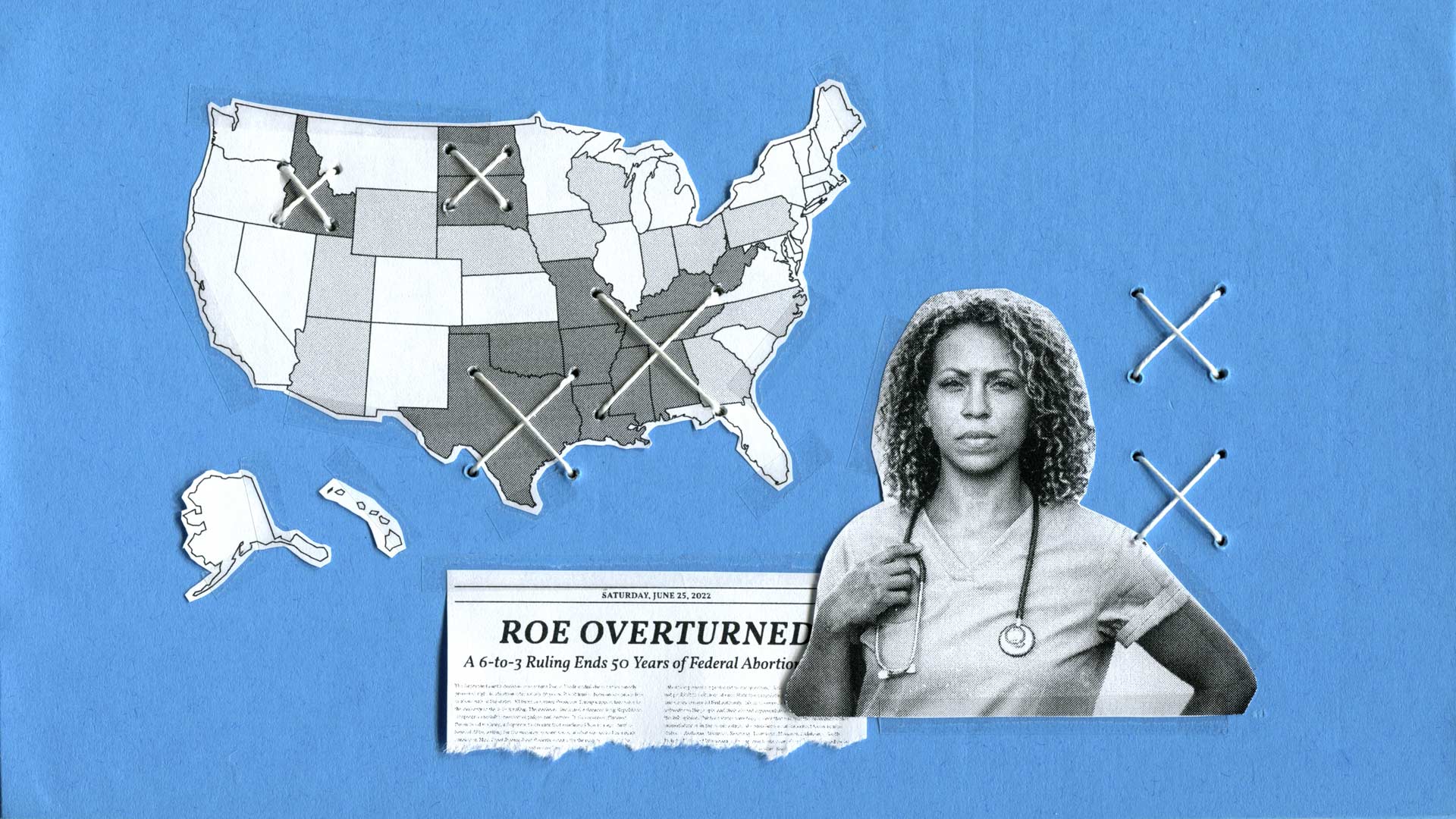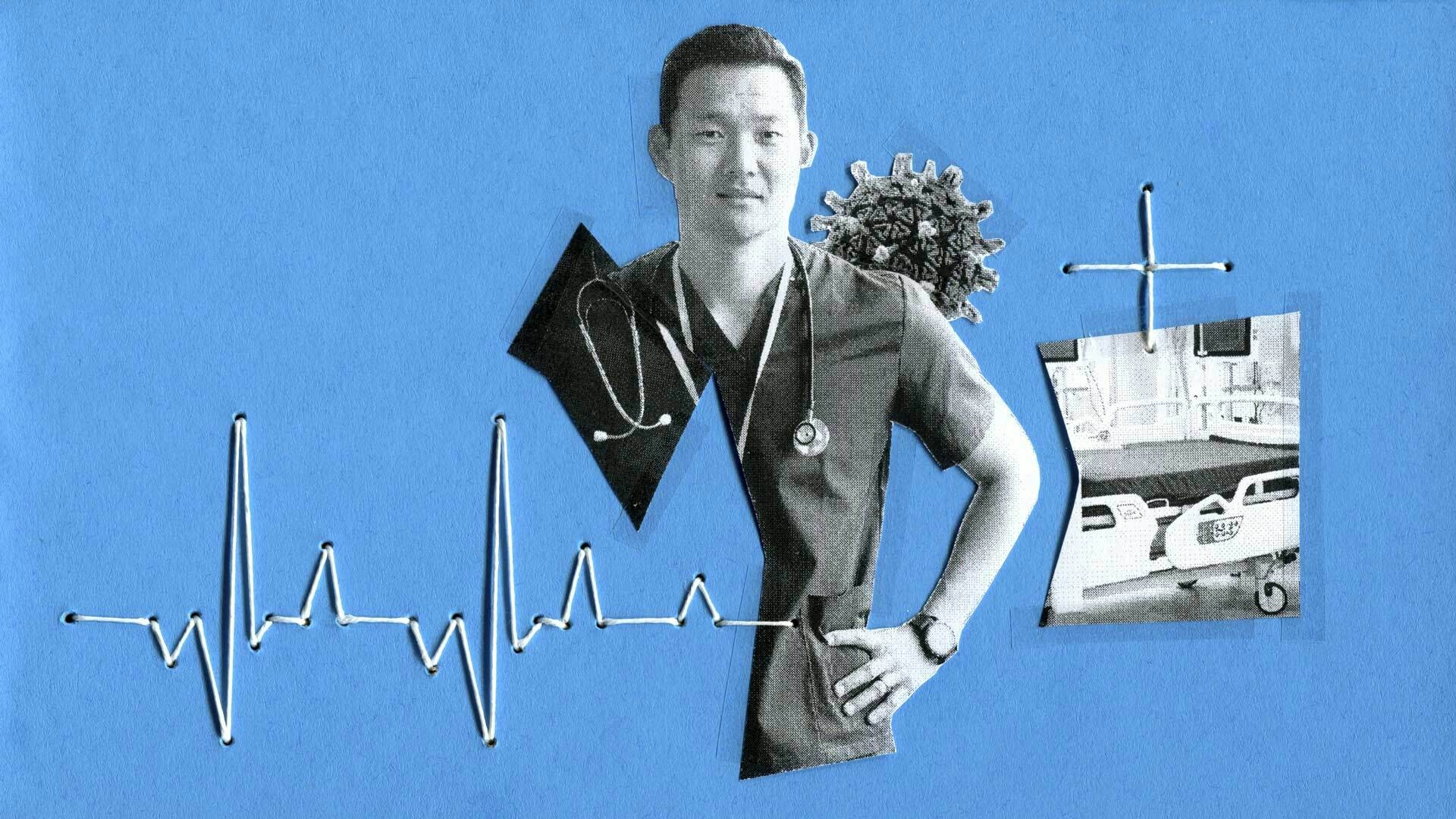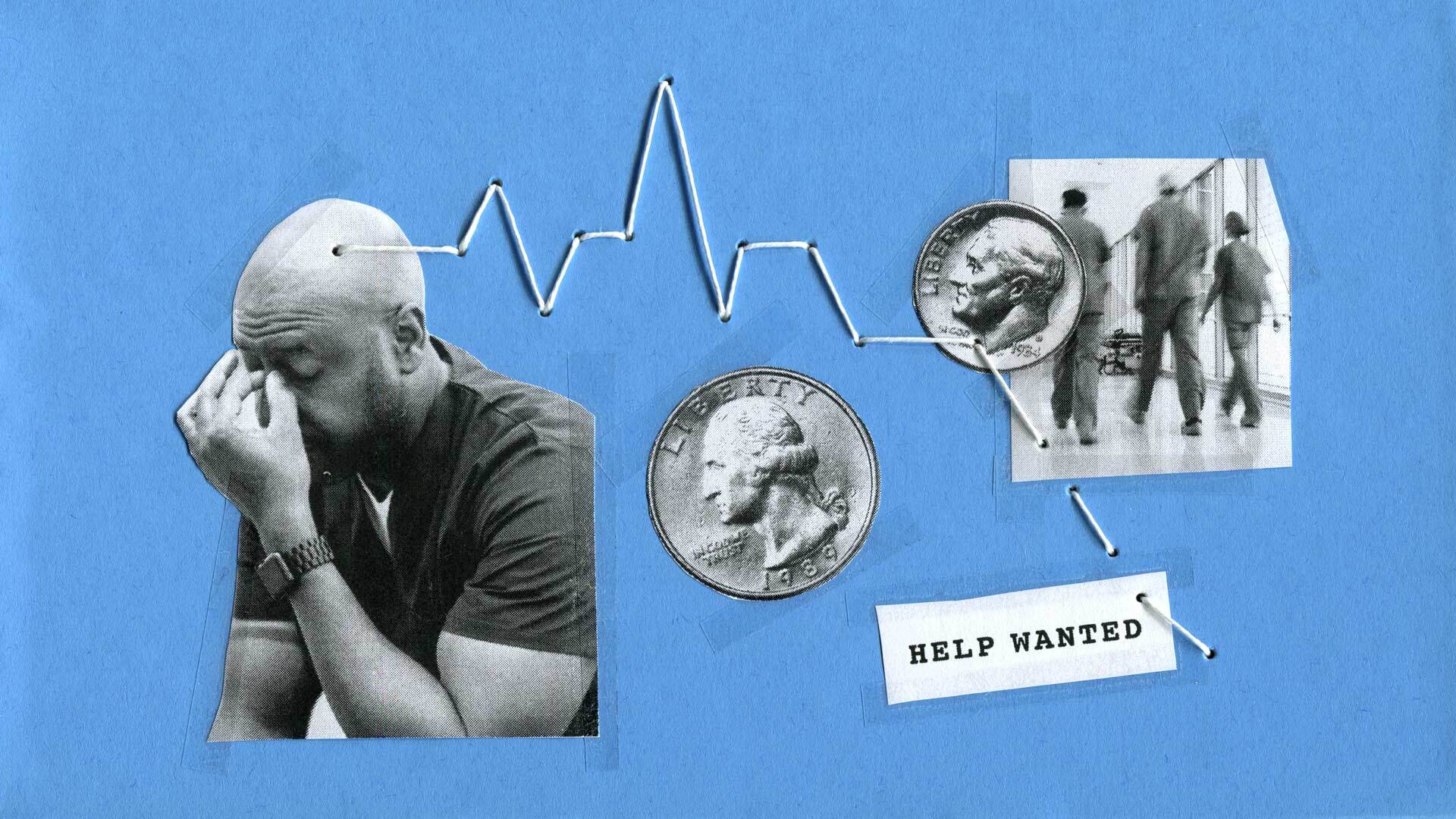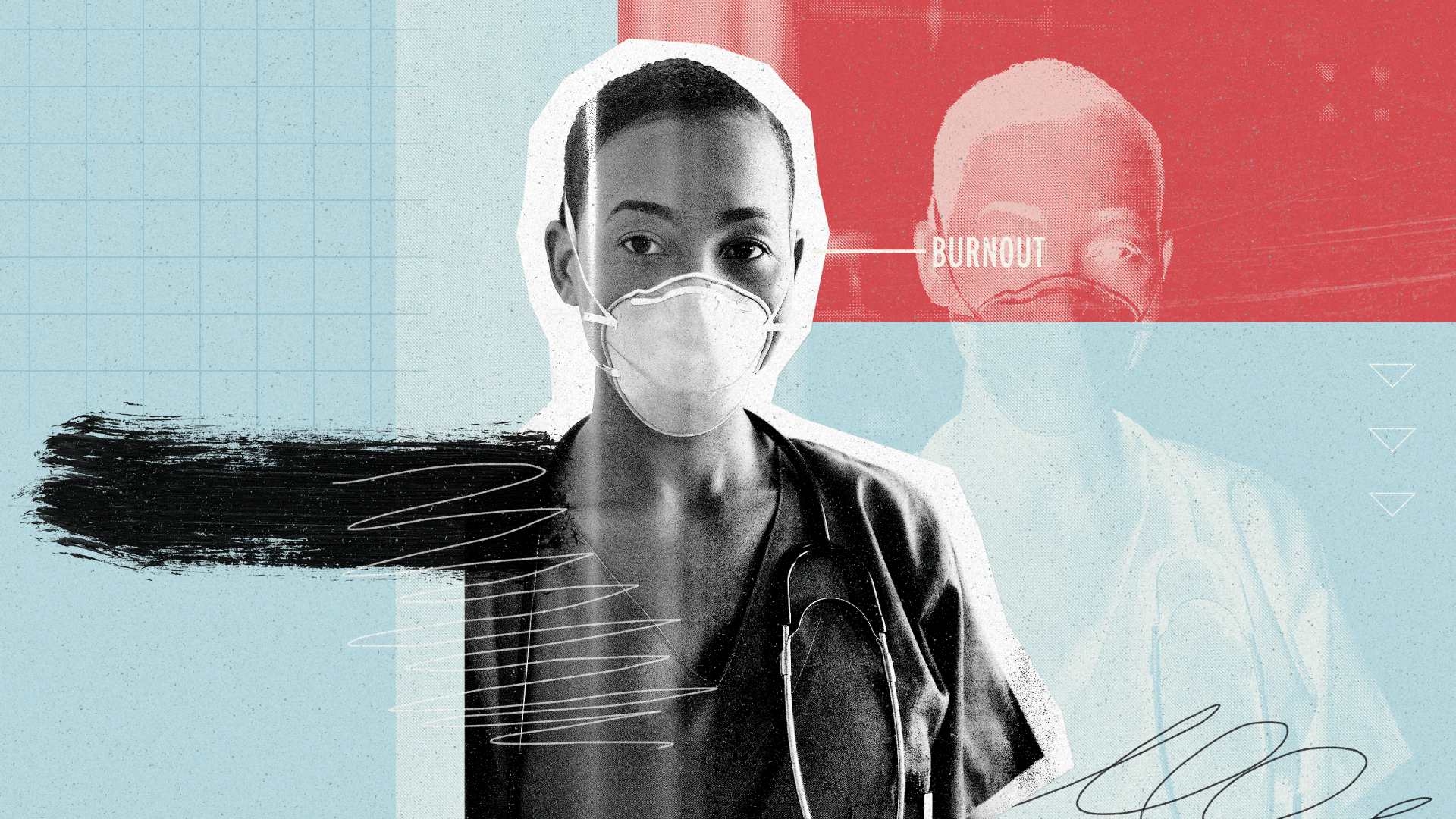Some Health Workers Are Considering Quitting, Moving Over Abortion Bans

Series Introduction
Since the start of the COVID-19 pandemic, many health care workers have left the industry amid unprecedented stress and trauma. New Morning Consult data from roughly a thousand health care workers shows signs of optimism, but challenges remain as workers contend with staffing shortages, insufficient wages and an ever-increasing political environment.
Read our coverage: Industry’s Future | Labor Challenges
Key Takeaways
11% of health care workers said they have considered leaving the health care industry due to states’ implementation of abortion restrictions.
Similar shares of workers said they would consider moving to states where abortion access is protected and that they are concerned about their job security.
Experts are worried that more health care specialists could choose not to work in states with strict abortion policies in the future, which could ultimately hurt patients.
The Supreme Court’s decision to overturn Roe v. Wade one year ago has led to numerous state-level abortion bans and restrictions and a federal lawsuit that could severely limit access to abortion pills, the most common method in the United States.
The rush to implement strict abortion policies has caused some health care workers to not only question whether they want to continue to work in states with restrictions but whether they want to leave the industry altogether.
According to a new Morning Consult survey, more than 1 in 10 health care workers (11%) said they have considered leaving the industry in the past year because of recently implemented abortion bans or restrictions. An equal share of health care workers said they have worried about the security of their jobs in the past year for the same reason.
“Doctors, nurses, pharmacists, and medical leaders are sounding the alarm that women in America have been suffering through a health care crisis ever since the far-right Supreme Court overturned Roe v. Wade,” Sen. Elizabeth Warren (D-Mass.) said in an emailed statement.
Warren, along with five other Senate Democrats, released a report last week that investigated the impact of abortion bans and restrictions on the U.S. health system over the past year. The report states that the stricter policies have significantly limited access to abortion, pregnancy and miscarriage care in the country, as well as limited access to services unrelated to abortions.
Recent Abortion Restrictions Lead Some Health Workers to Consider Career Changes
States’ severe limits or bans on abortion services have forced some health clinics to close and generated fear in doctors and physicians about the legality of providing certain services. A study from a professor at Middlebury College shows that 14% of people in the United States live more than 200 miles away from an abortion facility as of April 2023, an increase from less than 1% one year ago.
Abortion bans, restrictions could force health workers to move to states where access is protected
Abortion restrictions could also cause physicians and other health care workers to leave states with stricter laws: 13% of health care workers said they have considered moving to a state where abortion services are protected.
Danika Severino Wynn, vice president of abortion access with the Planned Parenthood Federation of America, said in an emailed statement that the Supreme Court’s decision to overturn Roe v. Wade exacerbated staffing shortages already plaguing the industry.
“While some providers may remain in abortion restrictive states, others may relocate to other states where they can provide the care they were trained to offer,” Wynn said. “Losing physicians creates more health care deserts and worsens existing health care disparities, including the country's abysmal maternal mortality and morbidity rates. This is a decision providers should never be forced to make.”
The American Hospital Association, a top hospital lobbying group, declined to comment on whether abortion policies are affecting health care workers’ decision to live or practice in states with bans and restrictions.
Research shows abortion bans and restrictions are beginning to impact application numbers
An April report from the Association of American Medical Colleges showed that residency applications for the 2022-23 cycle dropped by 3% from the prior year in states that have implemented abortion bans, compared with a nearly 2% decline nationwide. There is a meaningfully greater impact for the obstetrics and gynecology specialization: OB-GYN applications decreased by 10.5% in states with abortion bans and 6.4% in states with gestational limits, compared with a 5.2% decline in all states.
Specific demographics at scale: Surveying thousands of consumers around the world every day powers our ability to examine and analyze perceptions and habits of more specific demographics at scale, like those featured here.
Why it matters: Leaders need a better understanding of their audiences when making key decisions. Our comprehensive approach to understanding audience profiles complements the “who” of demographics and the “what” of behavioral data with critical insights and analysis on the “why.”
Atul Grover, executive director of the AAMC’s Research and Action Institute, said more data needs to be collected over the coming years to better understand what is motivating people’s decisions. However, he added that health care professionals do not want political interference when they are deciding what is the best care for their patients.
“I cannot tell you that the reason that those people chose to avoid sending any applications to these particular states was because of an abortion ban,” Grover said. “We need to follow that over time to see what's happening, and I think also states and institutions need to ask people specifically, ‘Why are you choosing a residency here or choosing a practice location here?’”
Grover explained that while AAMC’s data shows just a one-year decline, he is “absolutely” concerned the trend would continue, which could ultimately compromise patient care in general, not just abortion care.
“There's some real concern about the ability of people to practice the best medicine that they're capable of when you have states creating intrusive laws,” he said.
This report has been updated with comments from Sen. Elizabeth Warren (D-Mass.).
Ricky Zipp previously worked at Morning Consult as a health care analyst on the Industry Intelligence team.
Related content

Health Workers Are Optimistic About Industry's Future as COVID-19 Wanes

Health Workers Impacted by Staff Shortages More Likely to Consider Quitting
